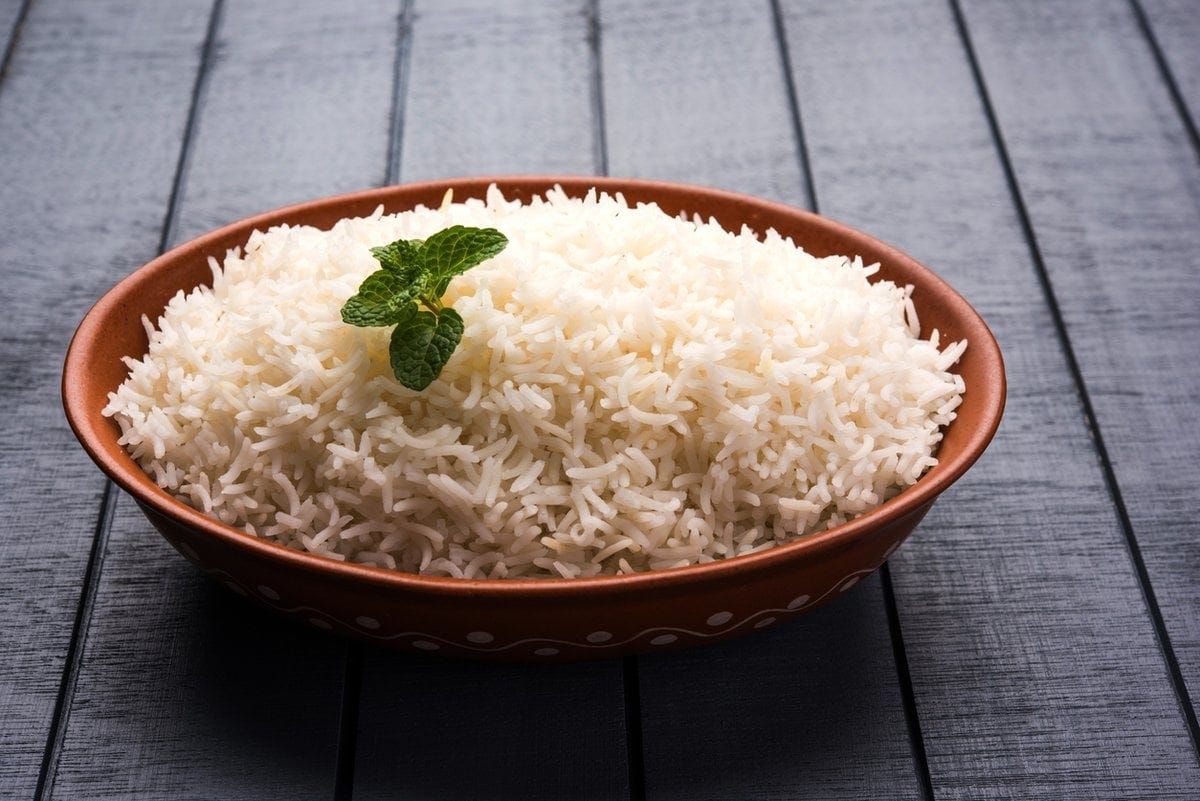Is basmati rice good for diabetics based on your recent research? Basmati rice is a crowd-pleaser that is popular around the world for its unique flavor. But is it a nice option for diabetics?
Does the rice raise your blood sugar levels? Know how basmati rice can be beneficial for diabetics and what portion of it you can include in your daily diet.

The initial thing that comes to mind when you think of basmati rice is its aroma, which is apt as basmati loosely translates to “queen of fragrance”. This staple in Indian rice dishes is very famous all around the world for its flavor.
But what about its nutritional value? Is basmati rice okay for diabetics? Is it more active than white rice when it comes to blood sugar control? Know all about how to use this rice to your advantage.
Basmati Rice: Nutritional Profile
Basmati rice is a variety of long-grain, aromatic rice that is planted mainly in India and Pakistan. Basmati rice is available in three varieties, namely white, brown, and parboiled rice, based on how the rice grain is processed. They are:
1. White Basmati Rice
This is a processed form of rice. In this type, the grain’s outer layers like the hull and bran, as well as the germ (the most nutritious part of the grain) are removed.
2. Brown Basmati Rice
This is an unprocessed form of rice. In this, only the hull is removed, retaining the fibrous bran layer and the germ, which is rich in nutrients.
3. Parboiled Basmati Rice
Parboiling is a process in which the rice grains are soaked in water, then steamed and slowly dried while still in the husk. This process helps the grains retain more of their vital nutrients and causes the starch to become gelatinized.
All three varieties provide essential nutrients. White basmati rice is low in carbohydrates and calories, which makes it beneficial for blood sugar control, and brown basmati rice is good for diabetics as it contains more fiber, protein, and nutrients. Parboiled basmati rice retains the highest amount of nutrients along with resistant starch.
According to the United States Department of Agriculture (USDA), 100 g portions of brown, white, and parboiled basmati rice contain the nutrients below:
| Nutrient | Brown basmati rice, uncooked | White basmati rice, uncooked | Parboiled basmati rice, uncooked |
| Amount | Amount | Amount | Amount |
| Energy | 378 kcal | 111 kcal | 344 kcal |
| Protein | 8.89 g | 2.56 g | 8.89 g |
| Total lipid (Fat) | 2.22 g | 1.03 g | 0 g |
| Carbohydrate | 73.33 g | 23.08 g | 80 g |
| Fibre, total dietary | 4.4 g | 2.1 g | 0 g |
| Sugar | 0 g | 0.51 g | 0 g |
How is Basmati Rice Good for Diabetes?

A low GI score means that when consumed, basmati rice will gradually increase your blood sugar levels, instead of causing a sudden spike. This makes it a nice option for diabetics when compared to white rice (GI score 72), which can destabilize your blood sugar levels when consumed.
Basmati rice also has a higher amount of protein and fiber compared to other types of rice. Both protein and fiber digest much slower compared to carbohydrates and thus release glucose into your bloodstream at a slower rate. This helps keep your blood sugar levels stable.
Protein and fiber also keep you satiated for a longer time, which can help in portion control and reduce overeating or snacking.
The fiber in basmati rice becomes the food for gut-friendly bacteria in the large intestine. These bacteria can help improve insulin sensitivity in your body, thus helping you maintain good glycaemic control. The resistant starch in parboiled basmati rice also acts like dietary fiber.
Conclusion
Basmati is a variety of rice with many health benefits, such as supporting weight management and helping improve bowel function. However, white rice varieties are not as healthy due to the starch they contain.
Eating rice with every meal could lead to symptoms of hyperglycemia, such as shortness of breath, abdominal pain, nausea, weakness, and dry mouth.
Rice is best when consumed in moderation, with no more than one serving (half a cup) per week, and even better when combined with proteins and fiber.
People with diabetes should consult healthcare experts to plan a customized meal plan for managing diabetes. Remember to keep a balanced diet and practice moderation for optimal health.


Leave a Reply